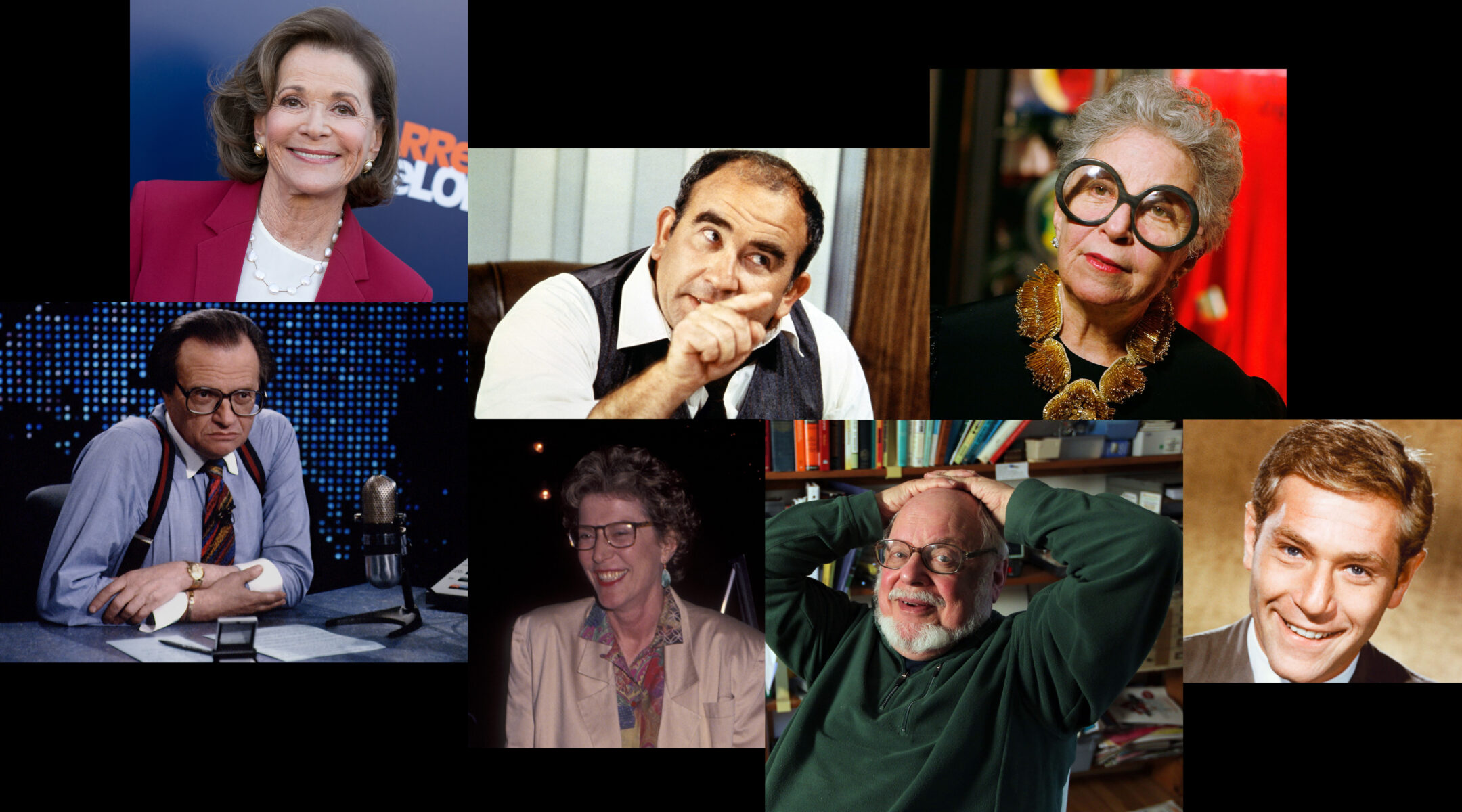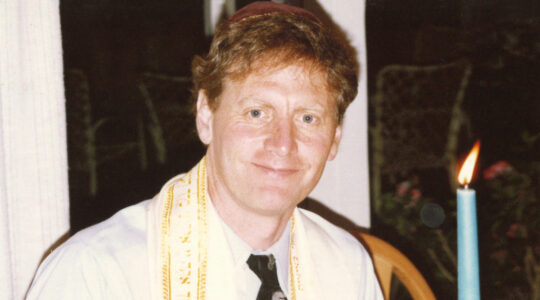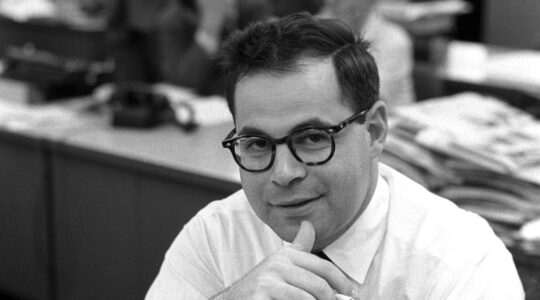(JTA) — Every year brings the deaths of Jewish icons who leave behind outsized legacies, from the realms of art and culture, government, business, philanthropy and beyond.
Here are 18 whom we lost in 2021 — none from COVID — presented in alphabetical order.
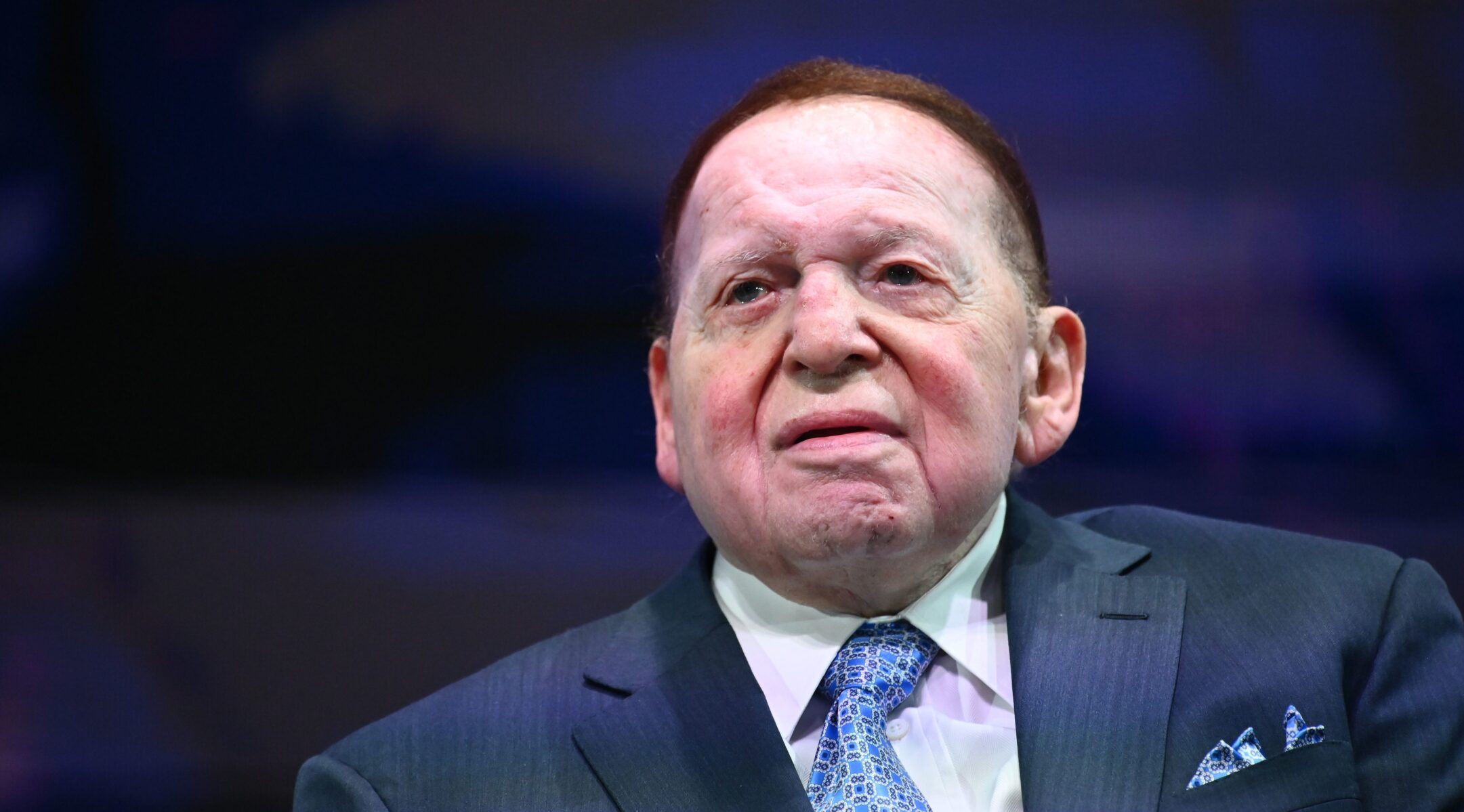
Sheldon Adelson listens to President Donald Trump address the Israeli-American Council National Summit 2019 at the Diplomat Beach Resort in Hollywood, Fla., Dec. 7, 2019. (Mandel Ngan/AFP via Getty Images)
Few people have exerted as significant an influence on American and Israeli politics as Sheldon Adelson, the billionaire casino magnate who gave lavishly to Republican candidates and Israeli causes. The founder and CEO of the Las Vegas Sands Corporation and one of the world’s richest men, Adelson regularly set records for his donations. At $25 million, he was the largest donor to Donald Trump’s successful 2016 presidential bid and the biggest giver in the 2012 American election cycle, at nearly $93 million. He was also a leading supporter of Birthright Israel, the Republican Jewish Coalition, the Zionist Organization of America, the Republican Jewish Coalition and the Israel American Council. He had previously been a top AIPAC supporter, but cut off support more than a decade ago in favor of more conservative pro-Israel groups. He was also a principal backer of former Israeli Prime Minister Benjamin Netanyahu. He died in January at 87.
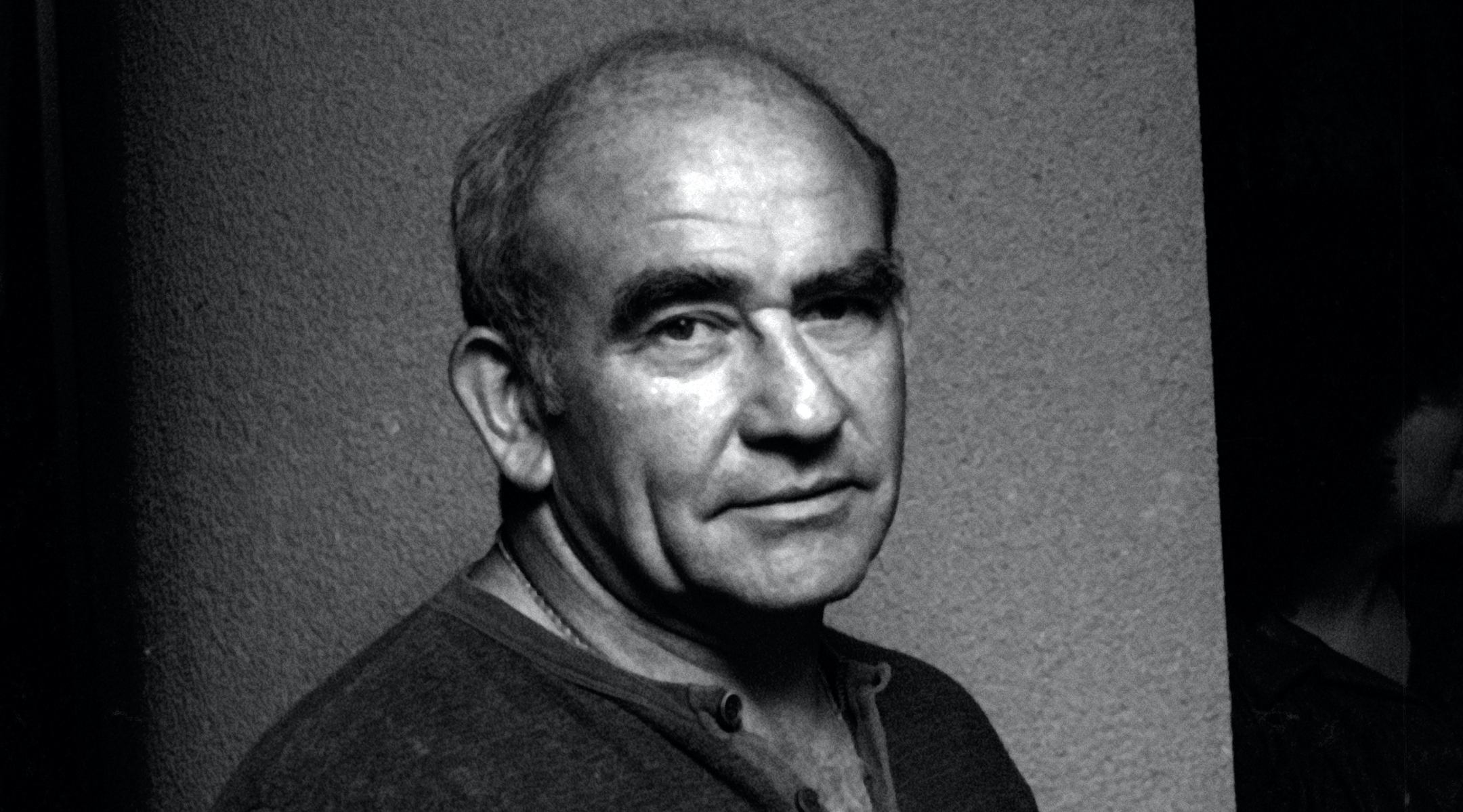
Ed Asner at rehearsals for the Emmy Awards at the Pasadena Civic Auditorium in Pasadena, Calif., Sept. 9, 1979. (Ron Galella, Ltd./Ron Galella Collection via Getty Images)
Ed Asner was an established character actor when he signed on to play the gruff TV station boss in “The Mary Tyler Moore Show” in 1970. He would go on to win an Emmy Award for his work on the sitcom, and another for playing the same character on a spinoff, becoming the only actor to win Emmys for playing the same character on two shows. Born to Jewish immigrant parents in Kansas City, Asner never shied from his Jewish roots, touring the country playing a Holocaust survivor in “The Soap Myth,” a run interrupted only by the coronavirus pandemic. He died in August at 91.

Sheila Bromberg shares a laugh with Ringo Starr on a BBC talk show in May 2011. (YouTube/Screenshot)
Sheila Bromberg turned up at the famed Abbey Road studio on a winter’s evening in 1967 because the in-demand harpist needed the cash as a single mom living in London. Her first clue that she was about to make history was a man with a Liverpool accent asking her, “What you got on the dots?” Paul McCartney was asking her to play the sheet music to “She’s Leaving Home.” The gig, earning Bromberg about the equivalent of $190 in today’s money, made her the first woman to perform on a Beatles track. She had a stellar career otherwise, recording with artists such as Frank Sinatra and the Bee Gees, and she did not want to be famous only for the Beatles milestone — but she eventually grew into it. “It does feel a bit good,” she said in 2011. She died in August at 92.
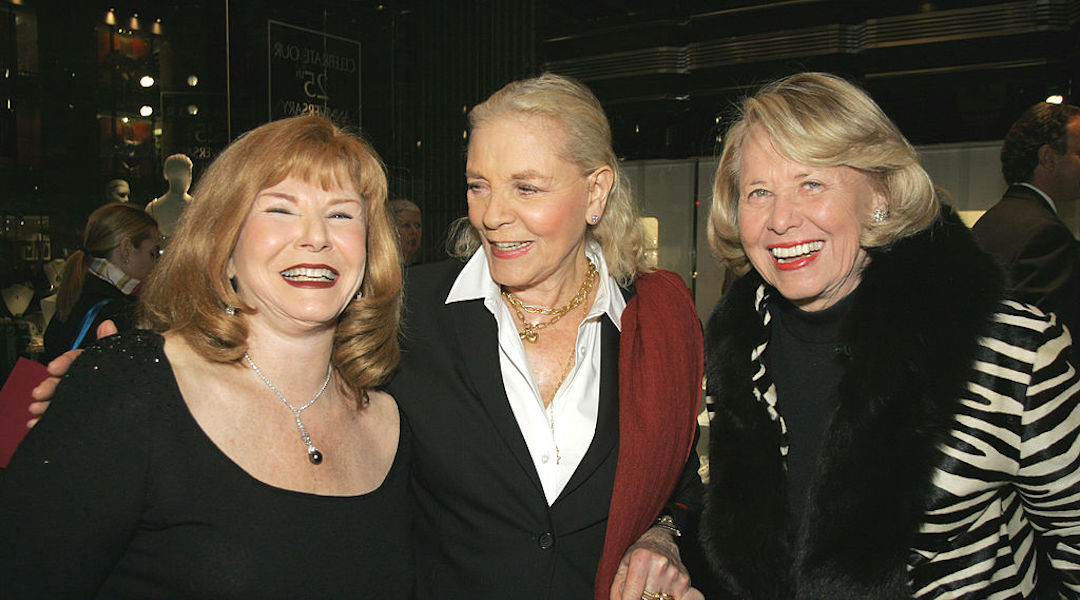
Helene Fortunoff, left, with Lauren Bacall and Liz Smith at an event in New York City. (Randy Brooke/WireImage)
Helene Fortunoff became a powerful player in the jewelry industry long before many women had even entered the workplace. She helped turn her husband’s housewares business into a major player, which at its height operated six retail stores specializing in high-end giftware, including its flagship location on New York City’s Fifth Avenue. She was also a frequent donor to Jewish causes. Fortunoff died in November at 88 in Miami Beach.
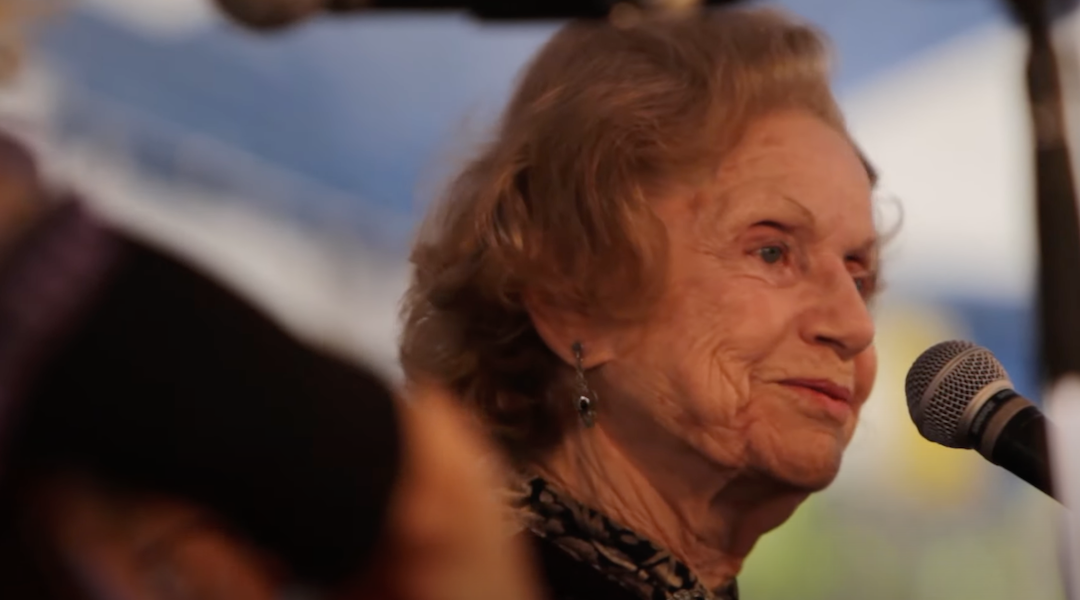
Flory Jagoda at the Richmond Folk Festival in 2012. (Screenshot from YouTube)
Flory Jagoda’s “Ocho Kandelikas,” a Ladino Hanukkah song, has become a holiday favorite widely covered by other artists. But it wasn’t written until 1983, when Jagoda was 60 years old. The Sarajevo-born singer-songwriter gained wide acclaim for her efforts to preserve Sephardic Jewish culture and Ladino music, winning a prestigious National Heritage Fellowship from the National Endowment for the Arts in 2002. She died in January at 97.
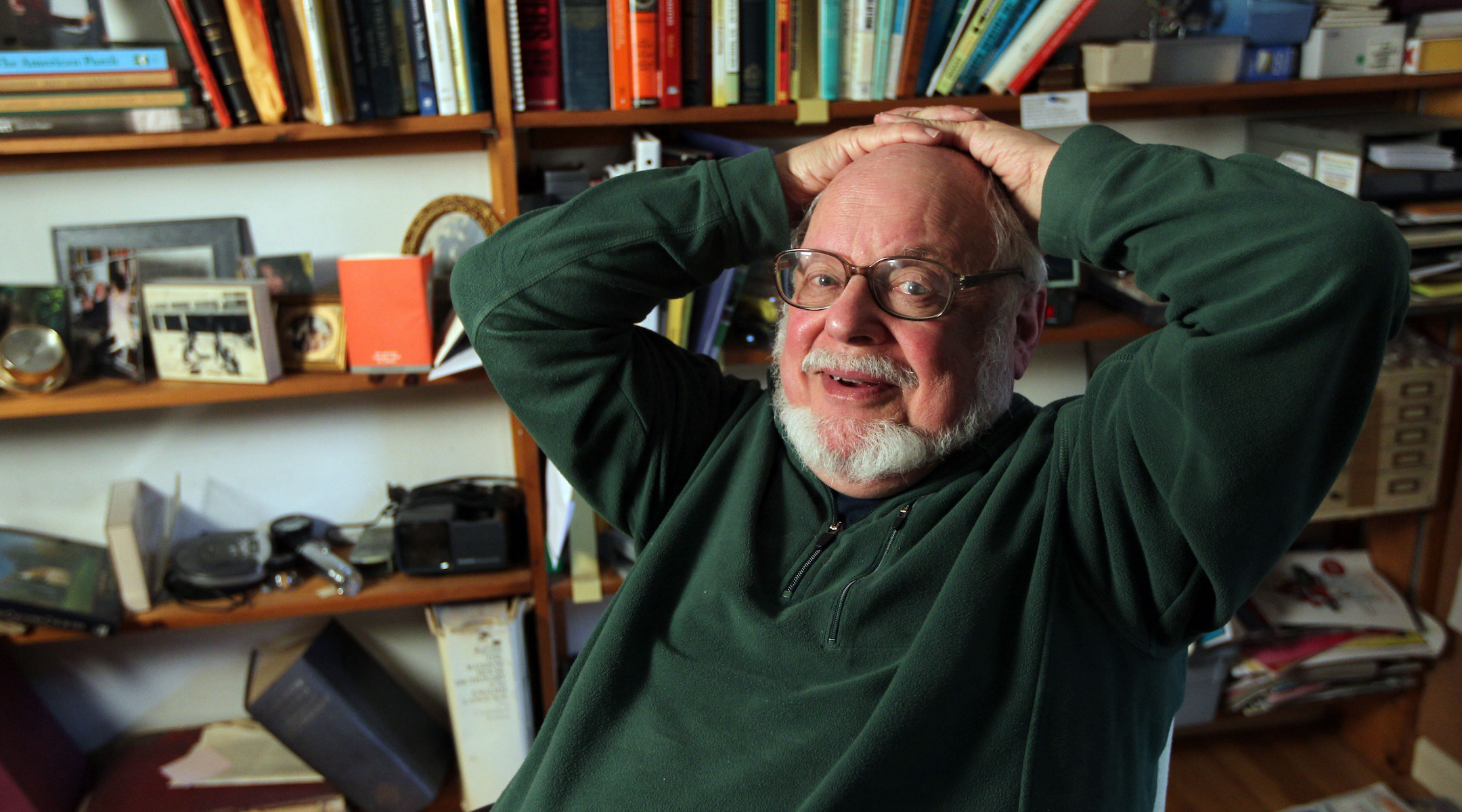
Norton Juster at home in Massachusetts. (Bill Greene/The Boston Globe via Getty Images)
“The Phantom Tollbooth,” one of the most beloved children’s books of all time, was written by a Jewish architect who fell in love with wordplay through Yiddish novels. Norton Juster said that his parents, Jewish immigrants from Romania and Poland, had multiple shelves of thousand-page novels and other tomes translated from Yiddish and Russian. “I just loved the language and the way the words sounded,” he said. He died in March at 91.
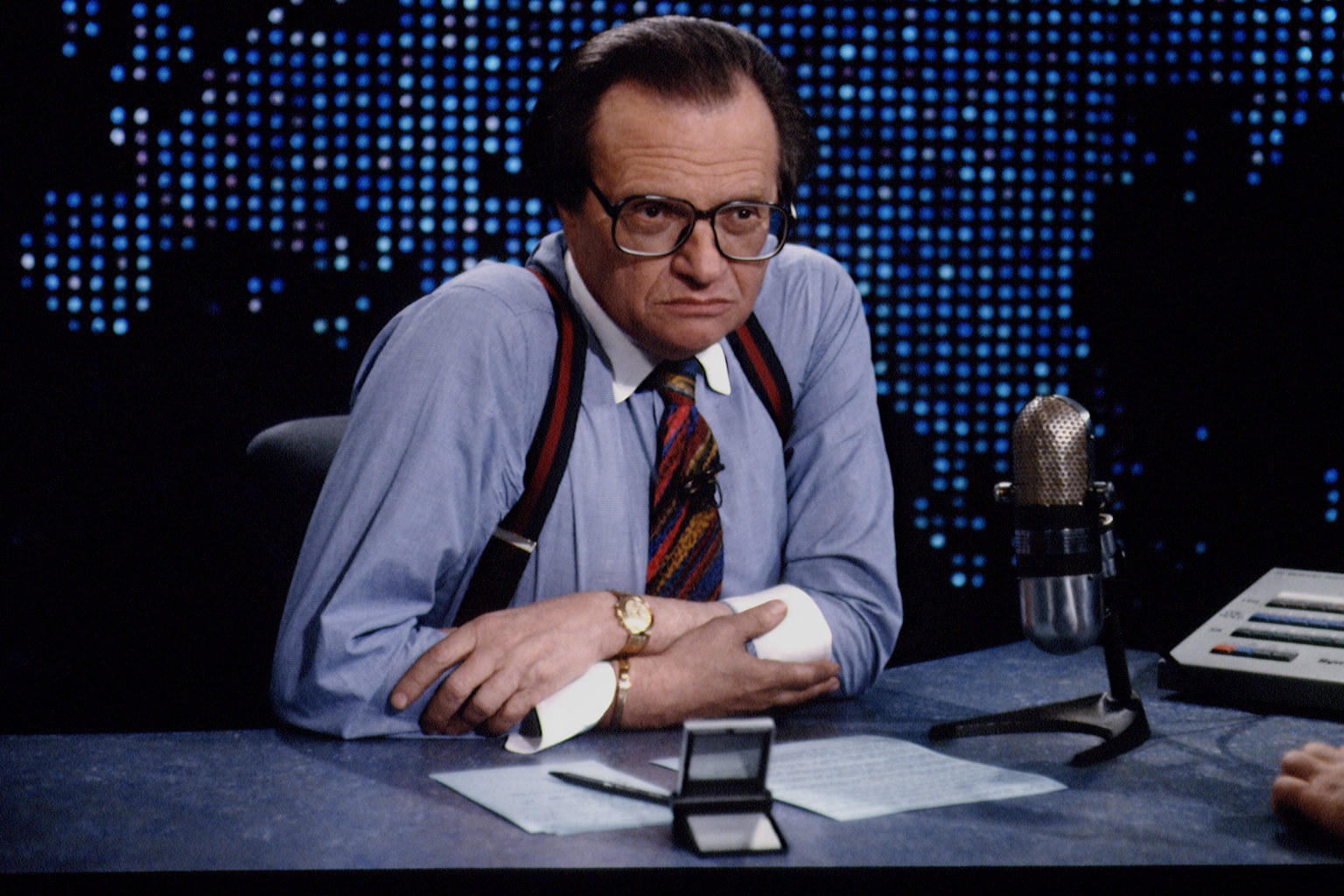
Larry King during an interview with Ross Perot in 1993. (Jeffrey Markowitz/Sygma via Getty Images)
Television talk show legend Larry King was nearly as famous for the 50,000 interviews he claimed to have conducted in his career as he was for his romantic history, marrying eight times to seven women. With his trademark suspenders and oversized glasses, King was a gentle presence on the air, known for asking open-ended questions and letting his interviewees respond at length. He also made much of his modest Jewish upbringing in Brooklyn, claiming to have done his entire bar mitzvah in Hebrew and raising money for Jewish charities into his 80s. He died in Los Angeles in January at 87.
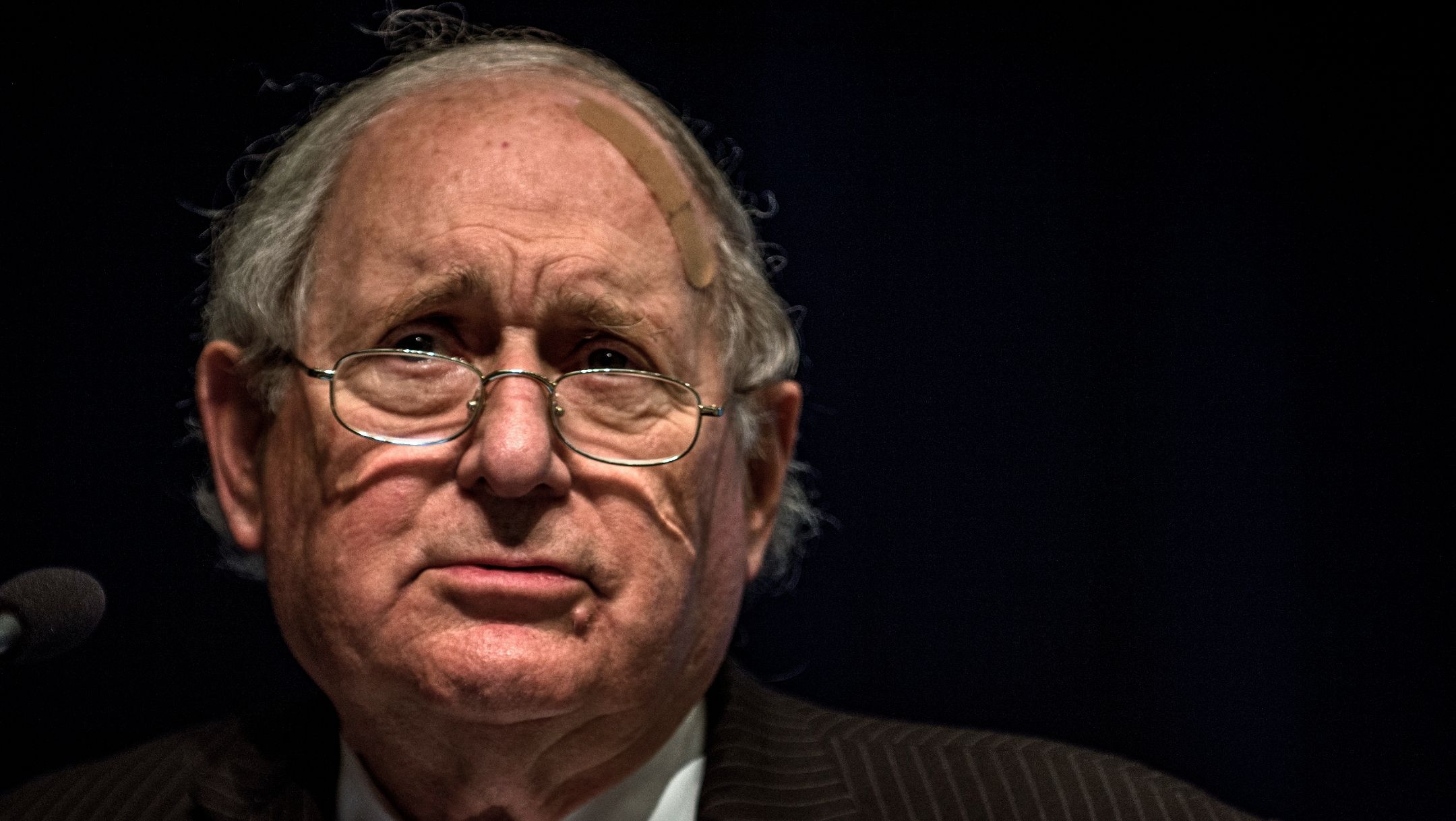
Former U.S. Sen. Carl Levin speaks at the headquarters of the World Bank in Washington, D.C., May 23, 2015. (Lawler Duggan/For The Washington Post via Getty Images)
Carl Levin was Michigan’s longest-serving senator, holding a seat in Congress’ upper chamber from 1978 until his retirement in 2015. He was also known as a relentless inquisitor. Hauling Goldman Sachs leaders before a committee on investigations following the carnage of the 2008 financial collapse, Levin repeatedly quoted an internal email in which executives admitted they misled their clients. Levin died in July at 87.
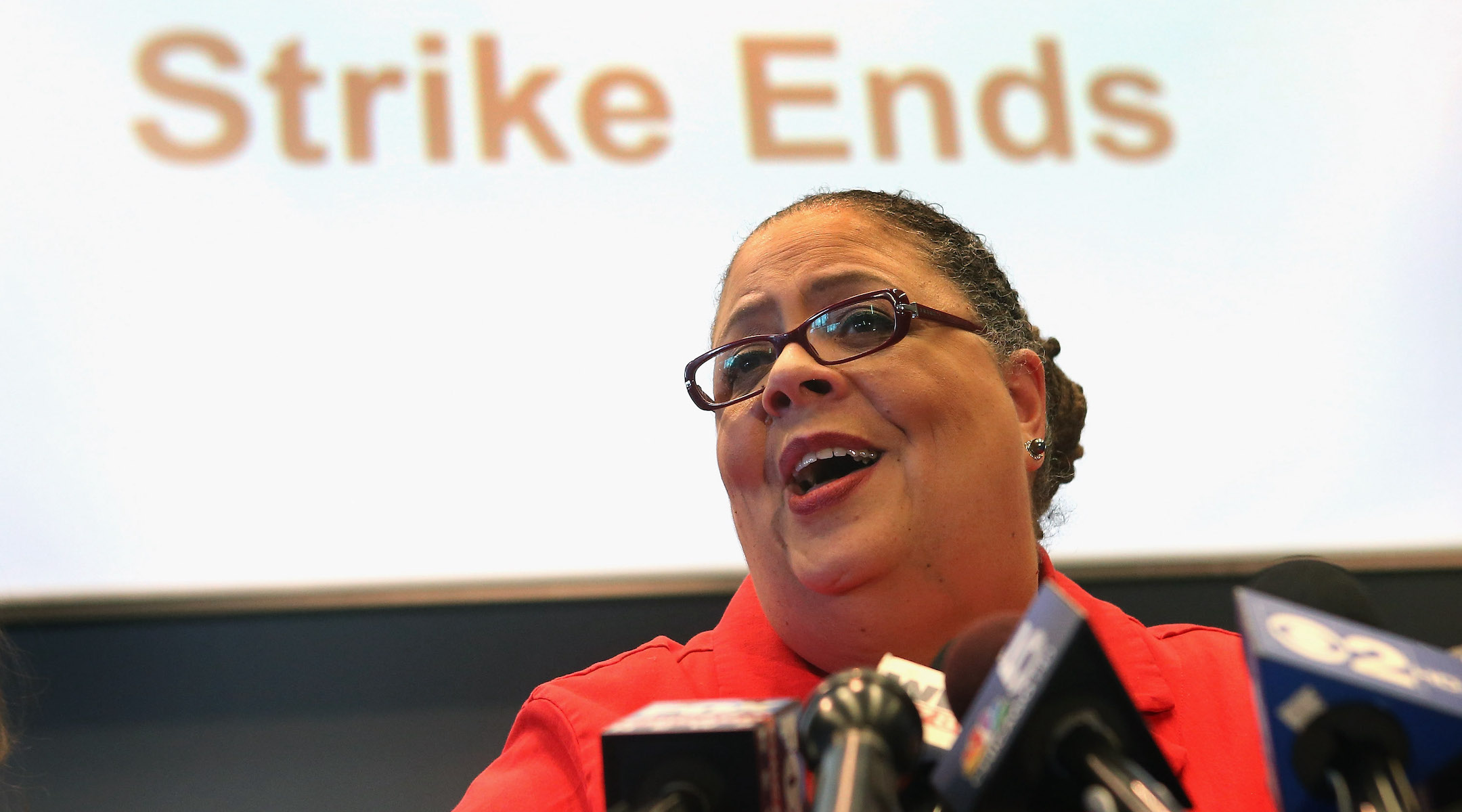
Karen Lewis holds a press conference after Chicago Teachers Union delegates voted to end their 2012 strike. (Scott Olson/Getty Images)
Lewis led the Chicago Teachers Union from 2010 to 2018, during which the group exploded into public awareness as a model for a new breed of public education organizing. Her teachers, and others across the country who followed in her footsteps, fought tooth and nail not just for better pay but also significant policy changes. A widely-covered seven-day strike in 2012 transformed Lewis into a public figure, and she briefly contemplated running for mayor of Chicago. Lewis felt herself drawn to Judaism in her 20s and became a regular at synagogue after converting. Although she feuded bitterly with Mayor Rahm Emanuel, the two reportedly became friends, in part bonding over their shared religion. She died in February at 67 from brain cancer.
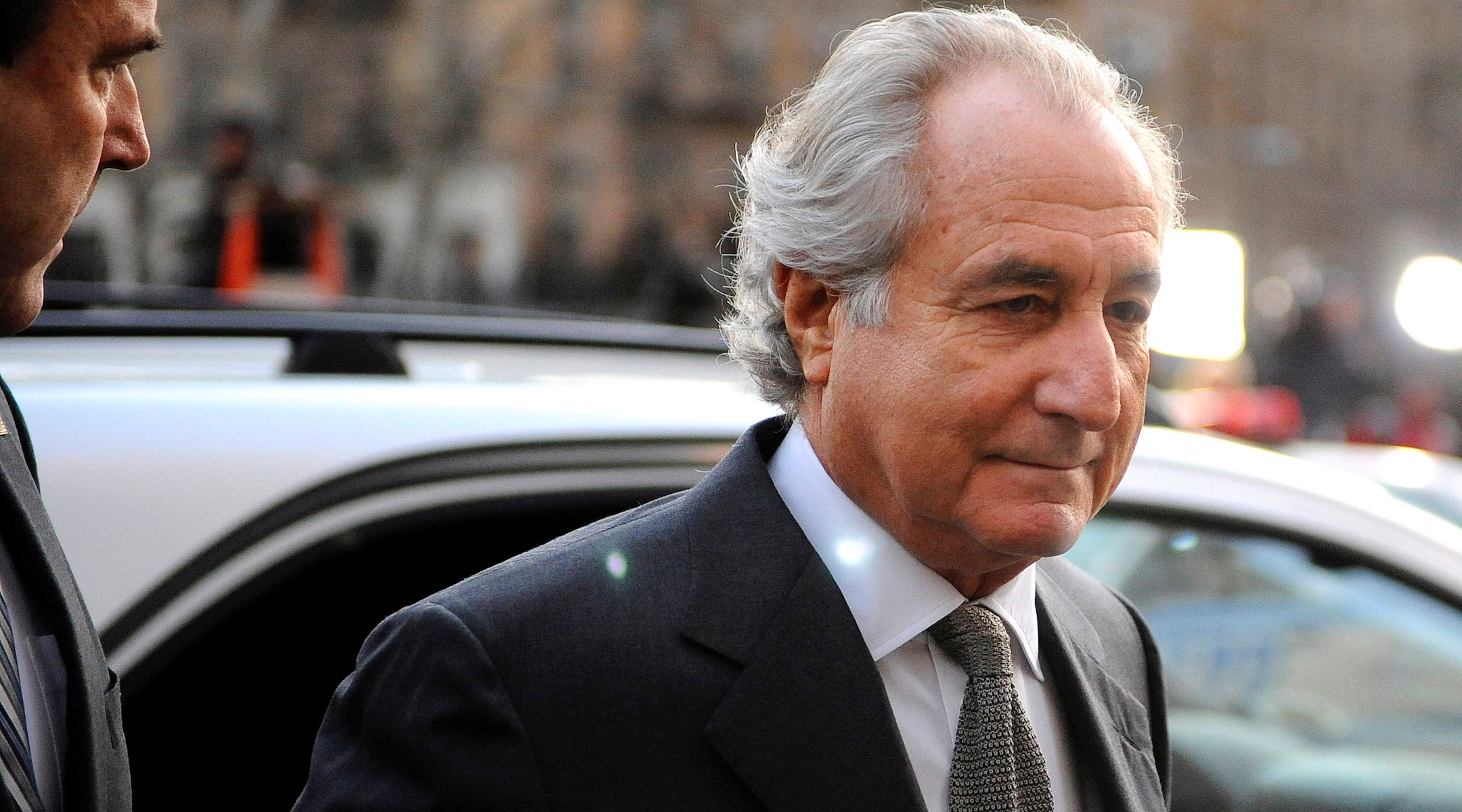
Bernie Madoff, pictured in 2009 ahead of his entering a guilty plea. (Stephen Chernin/Getty Images)
Bernie Madoff, the fraudster whose Ponzi scheme lost billions for investors — many of them major Jewish institutions — died in April while serving a 150-year sentence in a federal prison in North Carolina. The exposure of Madoff’s scam during the 2008 financial crisis rippled across the Jewish world. Yeshiva University, Hadassah and prominent Jews like Elie Wiesel and Sandy Koufax were among the thousands of investors who saw their profits wiped out overnight.
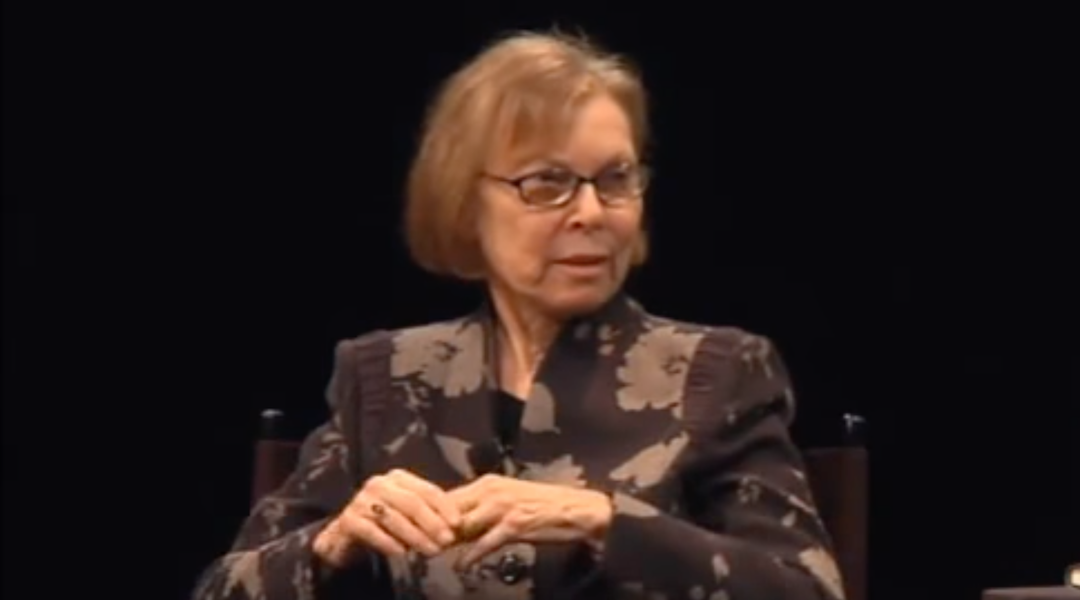
Janet Malcolm at The New Yorker Festival in 2011. (Screenshot from YouTube)
The influential New Yorker writer Janet Malcolm, hailed as one of the 20th century’s pioneers of New Journalism, didn’t know she was Jewish until she was called an antisemitic slur in elementary school. Her family had changed its surname from Wiener to Winn and hid its Jewish identity. Besides a 2018 essay in which she delved into this family history, Malcolm — who had married fellow writer Donald Malcolm in the 1950s — did not tackle Jewish topics, and instead often delved into the world of psychoanalysis and the journalism process. Her reputation took a hit after being sued for allegedly fabricating some quotes and distorting others for a series of articles and a book on the former director of the Sigmund Freud Archives, but after years of public scrutiny, a court ruled in her favor in 1994. She died in June at 86.
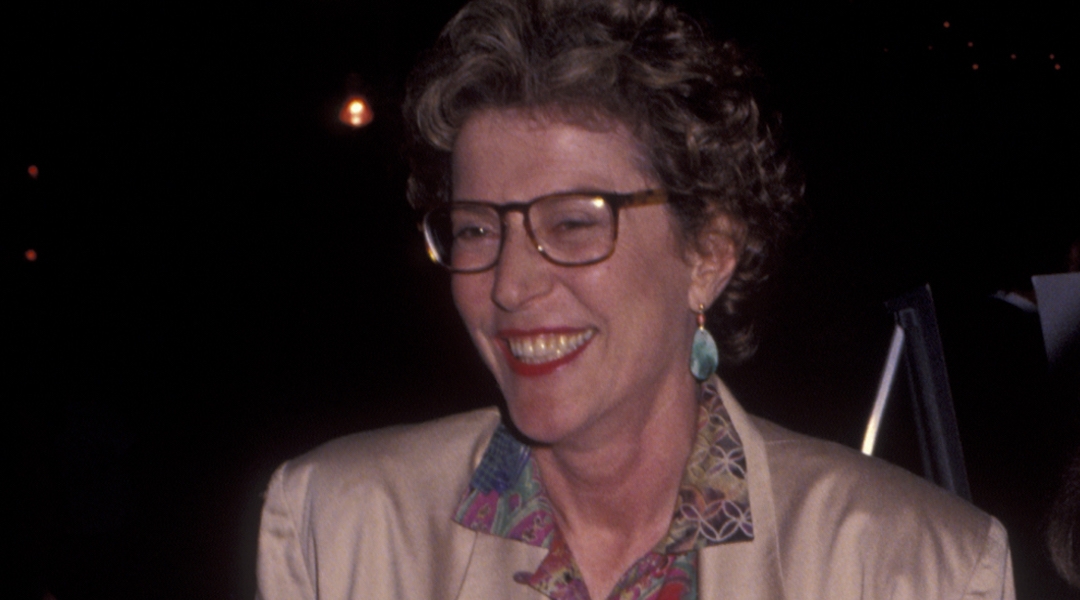
Joan Micklin Silver at the premiere of the film “A Private Matter” at the Director’s Guild Theater in Hollywood, Calif., June 14, 1992. (Ron Galella, Ltd./Ron Galella Collection via Getty Images)
Director Joan Micklin Silver was most famous for telling two love Jewish stories of New York’s Lower East Side, straddling both ends of the 20th century: “Hester Street,” almost entirely in Yiddish, was about a marriage of immigrants, and “Crossing Delancey,” made and set in the 1980s, was about a Jewish courtship involving a pickle seller. Both films, which her husband Ray helped produce, tackled the difficulties of assimilation. Her Hollywood ambitions were curtailed in part because of the Jewishness of her content, but also because of the challenges of being a female director in a sexist industry. She died in January at 85.
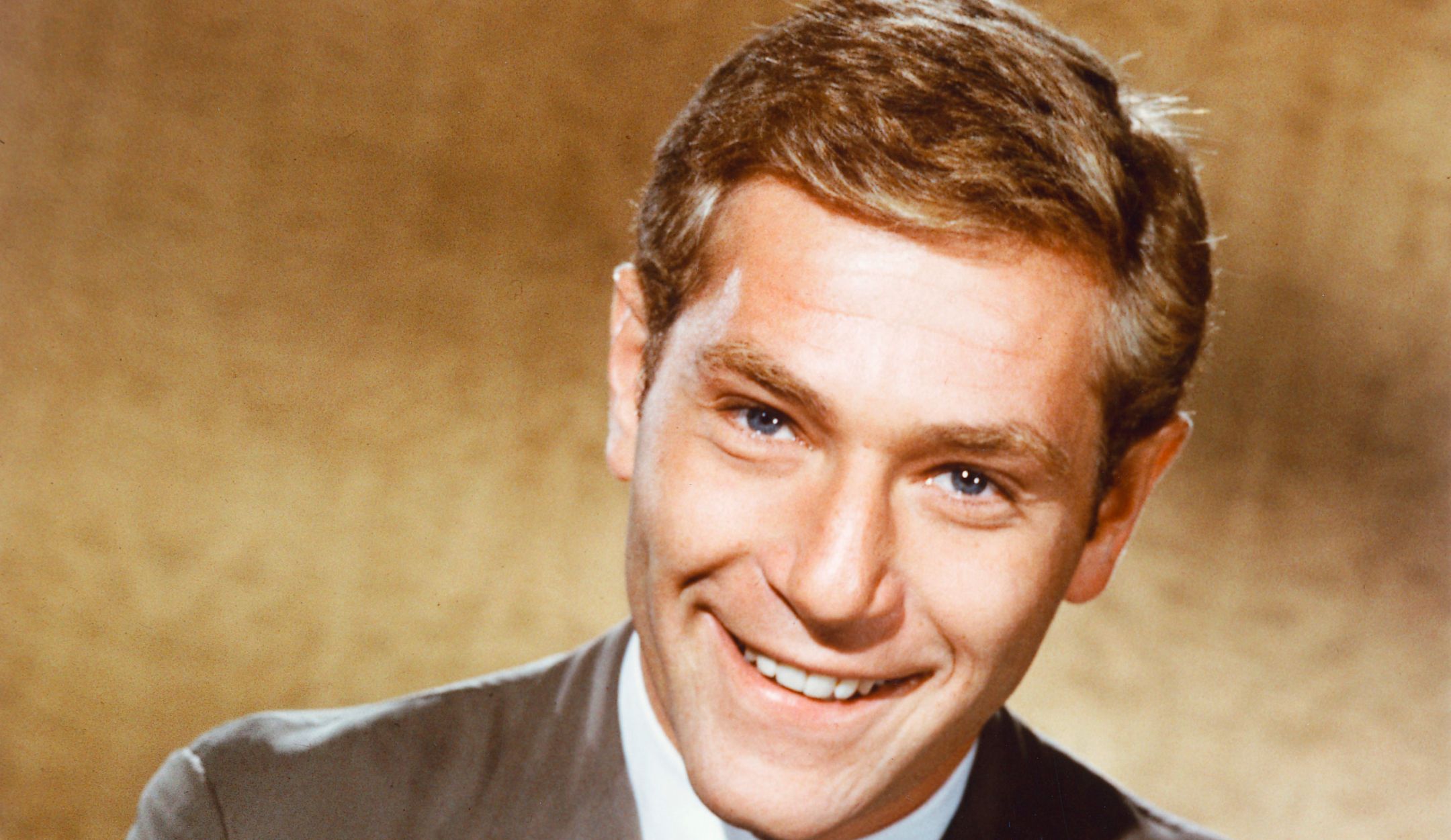
George Segal in a 1965 publicity shot. (Silver Screen Collection/Hulton Archive/Getty Images)
George Segal’s long career, stretching from the 1960s to this decade, started with troubled heartthrob roles — many of them explicitly Jewish. He later transitioned into Jewish dad roles; he had played the patriarch on ABC’s “The Goldbergs” for eight seasons when he died. Segal heralded a generation of Jewish actors who were unabashed about their Jewishness. He told The New York Times in 1971 that neither his name nor his nose were “unwieldy,” so why change them? He died in March, aged 87.
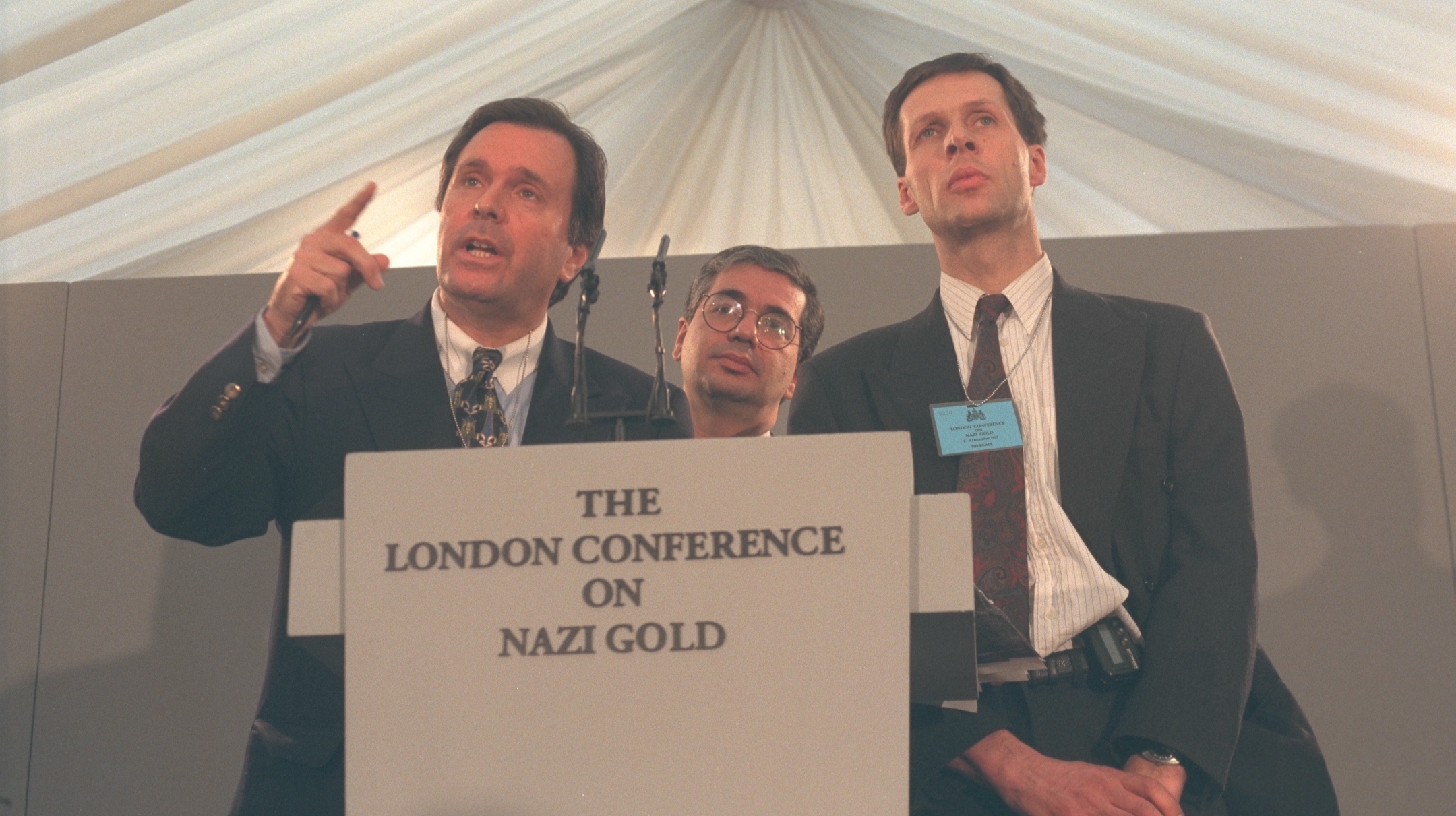
Neal Sher, left, addresses the London Conference on Nazi Gold with Elan Steinberg, center, and Stephen Ward, right. (Mathieu Polak/Sygma/ Sygma via Getty Images)
Neal Sher joined the Justice Department office tracking Nazi war criminals in the late 1970s and found it relied on tips from the public, which were not reliable. So he set about formulating a new system: Check immigration records against Nazi records. His methodology led to the removal of 69 Nazis (so far) who lied about their pasts when they immigrated. His research got former United Nations Secretary General Kurt Waldheim permanently uninvited from the United States. Sher never stopped being an advocate — he led the AIPAC pro-Israel lobby for a few years, and pressed for compensation for the beneficiaries of Jews who took out insurance policies before and during the Holocaust. He also lobbied for Purple Hearts for 13 troops killed in a terrorist attack on a Texas military base. He died in October, aged 74.

Stephen Sondheim, songwriter/lyricist, listening to music in the recording control room during the original cast recording of the Broadway musical “Into The Woods,” New York, 1987. (Photo by Oliver Morris/Getty Images)
Stephen Sondheim made his Broadway debut as the lyricist for “West Side Story” in 1957 and went on to redefine the American musical through a series of influential works that included “Into the Woods,” “Sweeney Todd,” “Follies,” “A Little Night Music” and “Sunday in the Park With George.” Sondheim avoided traditional Broadway formulas known to immediately draw audiences, instead crafting musicals about subjects that had not received treatments on mainstream stages: loneliness, despair and the artistic temperament. He died in November at 91.
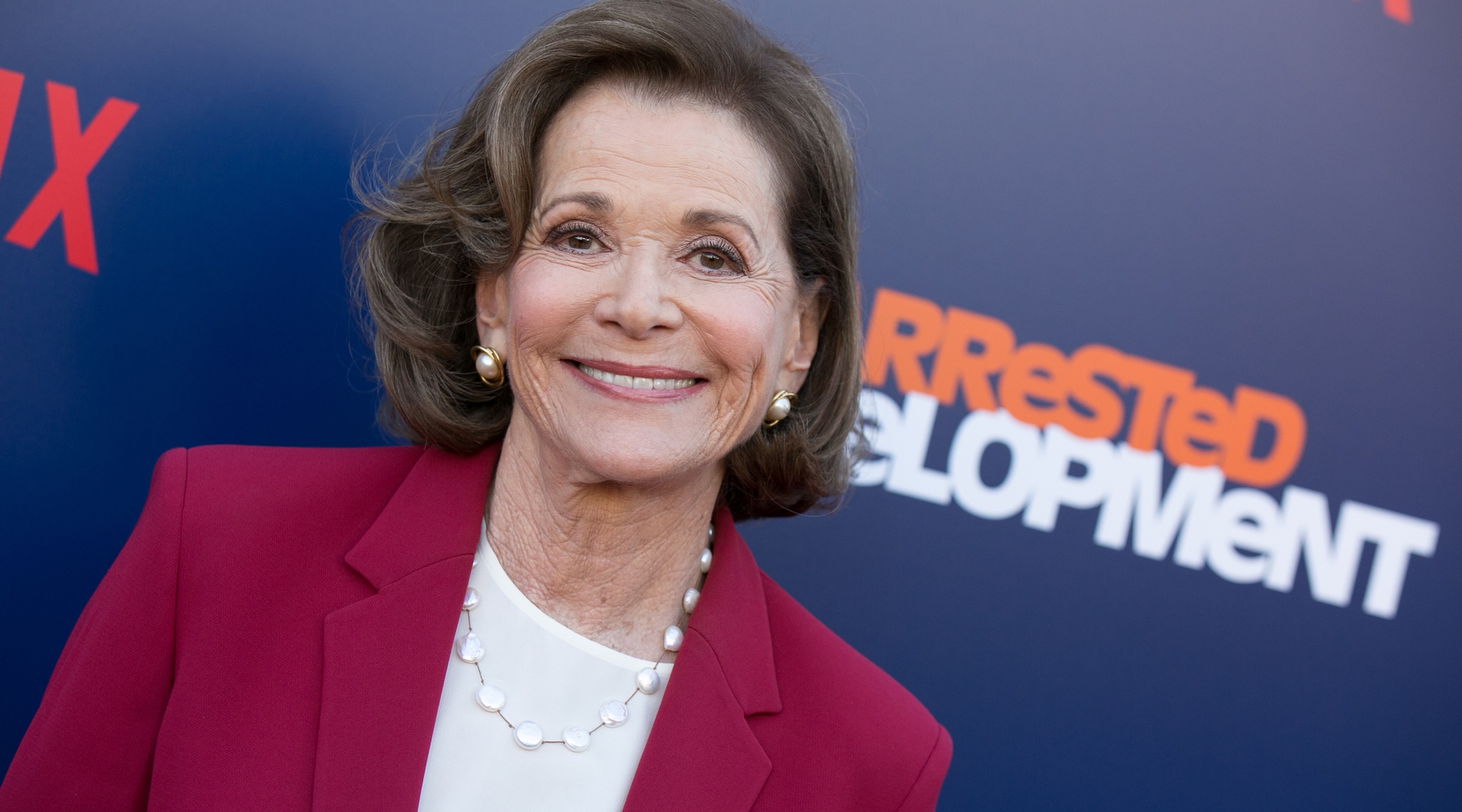
Jessica Walter at the premiere of Season 5 of “Arrested Development” in Los Angeles, May 17, 2018. (Gabriel Olsen/WireImage/Getty Images)
Jessica Walter earned a cult following for her portrayal of the manipulative Bluth family matriarch Lucille Bluth in the beloved TV comedy “Arrested Development.” But that role capped a long career in which she specialized in playing predatory women, beginning with “Bye Bye Braverman” in 1968. Another beloved character in recent years was Malory Archer, the mother to a dysfunctional secret agent in the animated sitcom “Archer,” to which Walter lent her voice. Walter died in March at the age of 80.
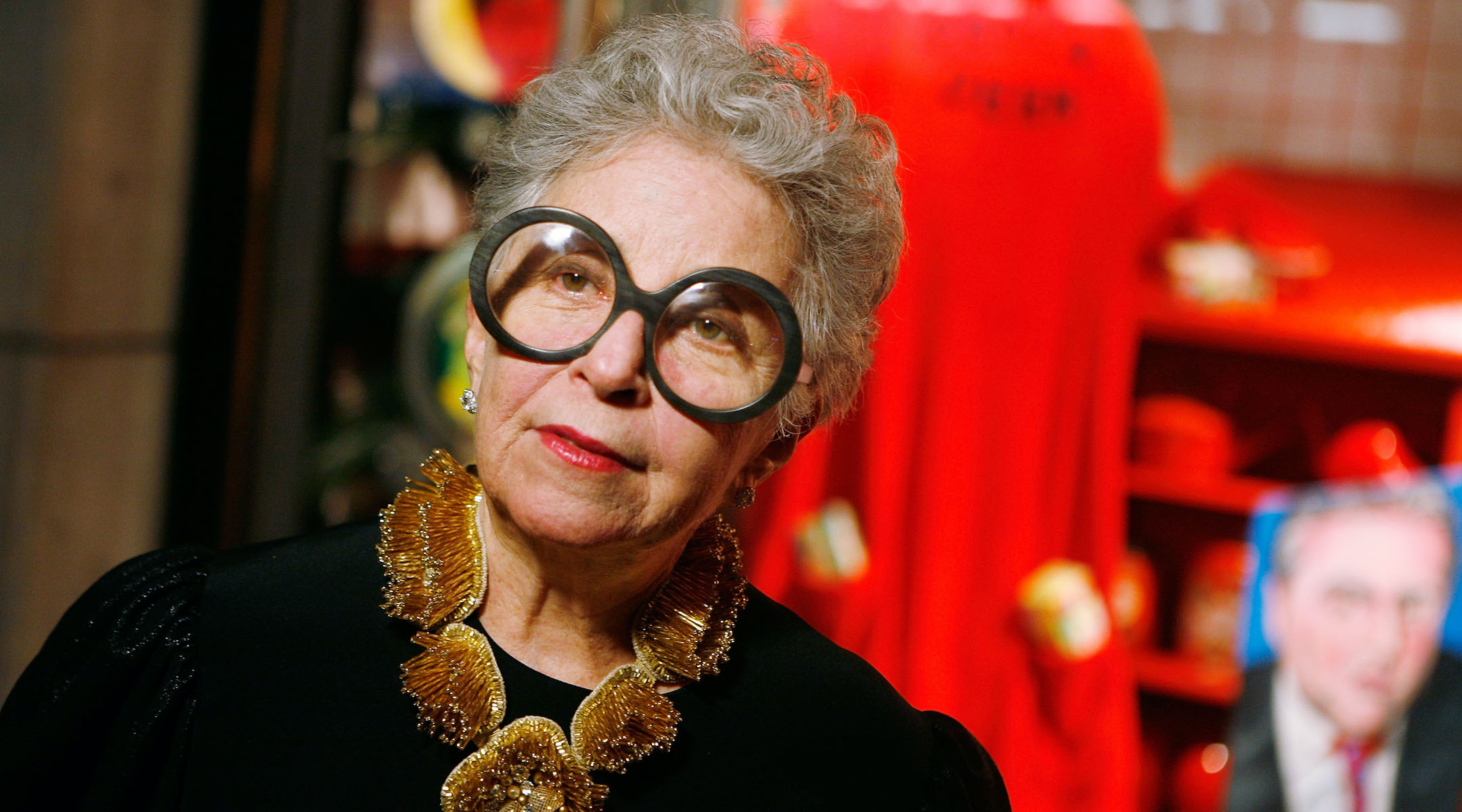
Cake designer Sylvia Weinstock at the holiday window unveiling at Barneys New York on November 16, 2010 in New York City. (Amy Sussman/Getty Images)
Weinstock was a grade school teacher living in Long Island until a bout with breast cancer at 50 led her into a career that would dub her the “Queen of Cakes.” She became famous for wedding cakes that were stunning handmade confabulations, among them a replica of Masada with the Dead Sea at its base. She paid close attention to detail and became a much sought after baker to the stars. Her husband Ben, an attorney who was handy with gadgets and who died in 2018, quit his job to build the devices that facilitated her masterpieces. She died in November, aged 91.
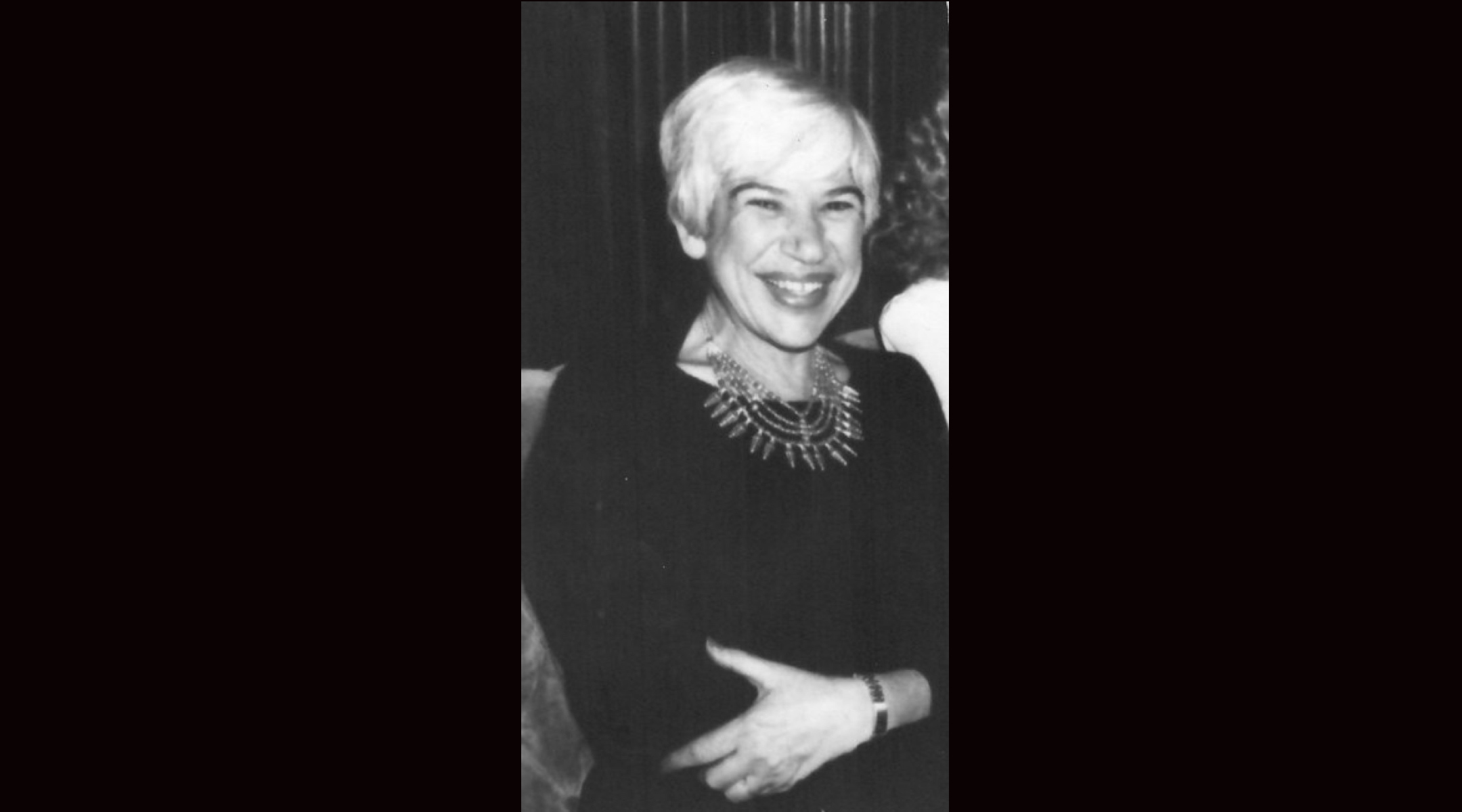
Shirley Zussman was a pioneering sex therapist who continued to see patients past her 100th birthday. (Dignity Memorial)
While Shirley Zussman may not be as well-known as Dr. Ruth Westheimer, one of the world’s most famous sex therapists, Zussman served as an inspiration to her fellow Jewish New Yorker. After studying with the famed Masters and Johnson sex experts, Zussman and her husband ran the Human Sexuality Program at Long Island Jewish Hillside Medical Center together for a decade, wrote a book about sexuality for couples, worked for several clinics and advised young people about sex into her 90s. She died earlier this month at 107.
JTA has documented Jewish history in real-time for over a century. Keep our journalism strong by joining us in supporting independent, award-winning reporting.
